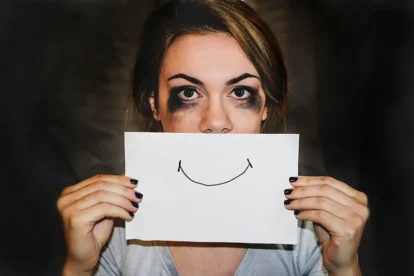The High Stakes of Alcohol and Ativan Addiction Make Comprehensive Treatment Essential

Alcohol and Ativan addiction is becoming more prevalent and carries significant risks for your emotional, behavioral, and physical health. The increasing lethality of benzodiazepines is due in large part to users combining alcohol and Ativan, casting the dangers of this cocktail into stark relief. If you are ready to start your recovery journey, however, going cold turkey isn’t the answer. Medically supervised detox is essential to keeping you safe and healthy and ensures you have a positive start to the treatment process.
When Leon talks about his history, there’s no telltale sign of future abuse, no origin story hinting at an inevitable fall into addiction. “Drinking had been a normal part of my life since I was about 18,” he says. “In college it helped me loosen up a bit and talk to women. When I started working, it was normal to go out for drinks after work, to let off some steam. But I never went crazy. I kept it moderate.” And for years, he did.
But then, just before his 30th birthday, things changed. “I planned a trip to Australia with my girlfriend and was dreading the thought of spending 15 hours in the air. My doctor gave me a prescription for Ativan to help take the edge off and maybe catch some sleep on the plane,” he explains. “Once on the plane, my girlfriend and I shared a champagne toast, I took my first Ativan, and that was it for me. I felt a kind of calm I’d never before experienced—totally free from worry.” The feeling was seductive and he sought to recreate it again and again. Within six months, his alcohol and Ativan cocktail had become a nightly ritual and he found he needed greater amounts of both substances to produce the same effects and stave off withdrawal. “It seemed like the perfect escape. Until, of course, it wasn’t.”
Alcohol and Ativan addiction can evolve in countless ways. For some, it begins with a legitimate Ativan prescription and a seemingly innocuous drink. Others seek out the potent cocktail illicitly for recreational purposes from the get-go or turn to Ativan to bring existing alcohol abuse to new heights. Regardless of how it begins, alcohol and Ativan addiction can be a painful and extraordinarily dangerous combination that threatens your emotional, behavioral, and physical wellbeing.
The Increasing Lethality of Benzodiazepines
Prescription drug abuse is widely recognized as the “fastest growing drug problem in the United States.” In large part this can be attributed to the exponential increase in prescription opioid abuse, fuelling a nationwide epidemic that has now been declared a public health emergency. However, opioids are not the only kinds of prescription drugs being abused at alarming levels; while overshadowed by the meteoric rise of opioids, rates of benzodiazepine abuse have jumped sharply in recent years, originating from both prescription and recreational use.
At first glance, benzodiazepines like Ativan can seem relatively innocuous; after all, if doctors hand out benzos to anyone with the slightest fear of flying, how bad can they be? According to the Centers for Disease Control and Prevention (CDC), the answer is “very.” The CDC found that benzodiazepines were involved in 30% of prescription drug overdose deaths in 2013, an increase of over 400% since 1999. While the number of benzodiazepine prescriptions increased during this time as well, the rate of that increase remains far lower than the rate of overdose deaths. What, then, explains the dramatic rise in benzodiazepine-related fatalities? According to Dr. Marcus A. Bachhuber, assistant professor of medicine at Montefiore Medical Center and Albert Einstein College of Medicine, the data suggest that “people used benzodiazepines in more risky ways as time went on.”
Begin Your Recovery Journey Today
866-922-1350The Risks of Combining Alcohol and Ativan
So what constitutes “risky” benzodiazepine use? “The risk of overdose and death from benzodiazepines themselves is generally low-to-moderate in otherwise healthy adults,” says Dr. Gary Reisfield, Professor of Psychiatry at the University of Florida. However, when combined with other sedatives, “their lethality is magnified.” Of particular concern is alcohol, which depresses the central nervous system similar to the way benzodiazepines themselves do. When alcohol and benzodiazepines like Ativan are taken together, they potentiate each other, augmenting the effects of each. As Dr. Karen Miotto, Director of the Alcoholism and Addiction Medicine Service at UCLA’s Semel Institute for Neuroscience and Human Behavior, explains, “Your usual three drinks is actually six.”
The most obvious danger of potentiation is respiratory depression: you simply stop breathing. However, Dr. Miotto points out that there are other, under-recognized risks attendant to alcohol and benzodiazepine abuse. “What I think is the most tragic aspect of this combination is that you get amnesia,” she says. “You can get people who die accidentally in the truest sense of the word. They don’t remember how many drinks they had, or how many pills they took.” Dr. Miotto has observed all manner of senseless deaths caused by alcohol and benzodiazepines, including drowning by people who take a shower to try to wake up and end up inhaling water due to their inability to keep themselves upright.
Even when consequences aren’t lethal, they can still be profound: you may engage in dangerous activities you would never even consider while sober and put yourself at risk of grave physical and emotional injury. This is in addition to the general risks attendant to alcohol and benzodiazepine use, including psychological, neurological, and physical health problems, fractured relationships, and overall diminished quality of life.
The Need for Medically Supervised Detox
When you decide that you want to heal from alcohol and Ativan addiction, your natural instinct may be to try to quit cold turkey; you know the dangers of your substance abuse and you want to remove those dangers immediately. While this impulse is understandable, the neurochemical impact of alcohol and Ativan means that sudden discontinuation can produce a host of withdrawal symptoms, ranging from the uncomfortable (sweating, tremors, nausea, headache, irritability) to the dangerous (mood disturbances, suicidal ideation, cardiac arrest, psychosis, and seizures). “When you come off benzodiazepines, it’s as if you are hit with a thousand fold of sounds and smells and light and fear and it’s excruciatingly painful,” explains Alesandra Rain, a recovering benzodiazepine addict. “I saw more (benzo addicts) leaving treatment (than opioid addicts) because they couldn’t take the withdrawal.” In extreme cases, withdrawal from these substances, particularly alcohol, can even be fatal. Dr. Harris Stratyner, Clinical Associate Professor of Psychiatry at New York’s Mount Sinai Hospital says “there is nothing more dangerous than alcohol” when it comes to withdrawal.
Due to the risks inherent to alcohol and Ativan discontinuation, it is essential to initiate your recovery in a treatment program that offers medically supervised alcohol detox. With the support of highly trained detox specialists, you can begin the withdrawal process in a monitored environment where you will be given appropriate pharmacological, emotional, and practical supports to minimize or eliminate withdrawal symptoms. Not only will this greatly increase your comfort and increase the likelihood that you will stay in treatment, it will always ensure that you stay safe during this vulnerable time.
We're Here to Help. Call Today!
866-922-1350Toward of Comprehensive Treatment for Alcohol and Ativan Addiction
Medically supervised detox allows you to start your recovery journey in the most positive way possible and seamlessly transition into the treatment process. For people struggling with alcohol and Ativan addiction, a comprehensive alcohol treatment program is essential to gaining the insight and skills necessary to build a strong foundation for sobriety.
By engaging in a personalized curriculum of therapies, you will be able to deeply investigate the roots of your addictions and develop meaningful strategies for creating meaningful change. This involves not only learning how to identify your triggers, learn effective coping mechanisms, and promoting a restoration of healthy brain function, but examining whether there are any underlying psychological issues that may have impacted your drug and alcohol use. If a co-occurring mental health disorder is present, your clinical team will be able to design a personalized treatment plan to address that disorder as part of your overall recovery process.
Of course, addiction doesn’t just affect you; it affects your loved ones as well. In order to promote healing for your entire family, high-quality Ativan treatment programs offer specialized family programming that gives your loved ones the opportunity to learn about and process their own experiences of your addiction. With the guidance of expert clinicians, you can begin to mend the wounds of addiction, fortify your relationships, and discover ways you can support each other through the journey of recovery. By harnessing your strengths and combining your inner resources, you can create true and durable healing.
Alta Mira offers comprehensive treatment for people struggling with drug and alcohol addiction as well as co-occurring mental health disorders and process addictions. Contact us to learn more about our renowned Bay Area programs and how we can help you or your loved one take the first steps on the path to recovery.






